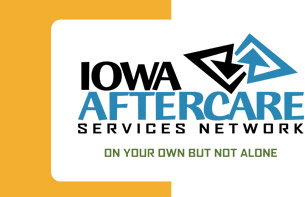
STATE AND FEDERAL POLICIES
State Laws and Rules Governing Transition Services in Iowa
Iowa Code: Preparation for Adult Living
The Iowa Legislature authorized the Preparation for Adult Living (PAL) program in 2006. This program provides for monthly financial support to young people who age out of foster care up to their 21st birthday, as long as they are either working or attending post-secondary education or training.
Iowa Administrative Rules – Aftercare and PAL
Rules governing the Aftercare and PAL programs provide additional guidance on the administration of these programs, including eligibility requirements and service provision.
Iowa Administrative Rules – Rent Subsidy Program
Rules governing the Aftercare rent subsidy program which provides assistance to qualifying aftercare participants to offset the cost of housing.
Federal Laws Impacting Transitioning Youth
Foster Care Independence Act of 1999
The Foster Care Independence Act of 1999, often referred to as the Chafee Act, provided States with increased funding and greater flexibility in carrying out programs designed to help children make the transition from foster care to self-sufficiency. A portion of Iowa’s Chafee allocation is contracted to the Iowa Aftercare Services Network to provide services to 18 to 21 year olds who age out of care.
Education and Training Vouchers
The Chafee Act was amended in 2002 to authorize a voucher program to provide financial assistance for post-secondary training and education to youth who have aged out of foster care or who have left foster care after age 16 for kinship guardianship or adoption.
Fostering Connections to Success and Increasing Adoptions Act of 2008
The Fostering Connections Act made extensive changes to federal child welfare laws. Among those affecting older youth are provisions to improve education stability and to extend Chafee services to youth who leave foster care for kinship guardianship or adoption after age 16. The Act also permits States to extend title IV-E assistance to youth remaining in foster care after reaching age 18 up to age 21. Also see National Center for State Courts (NCSC) for more information on this Act.
